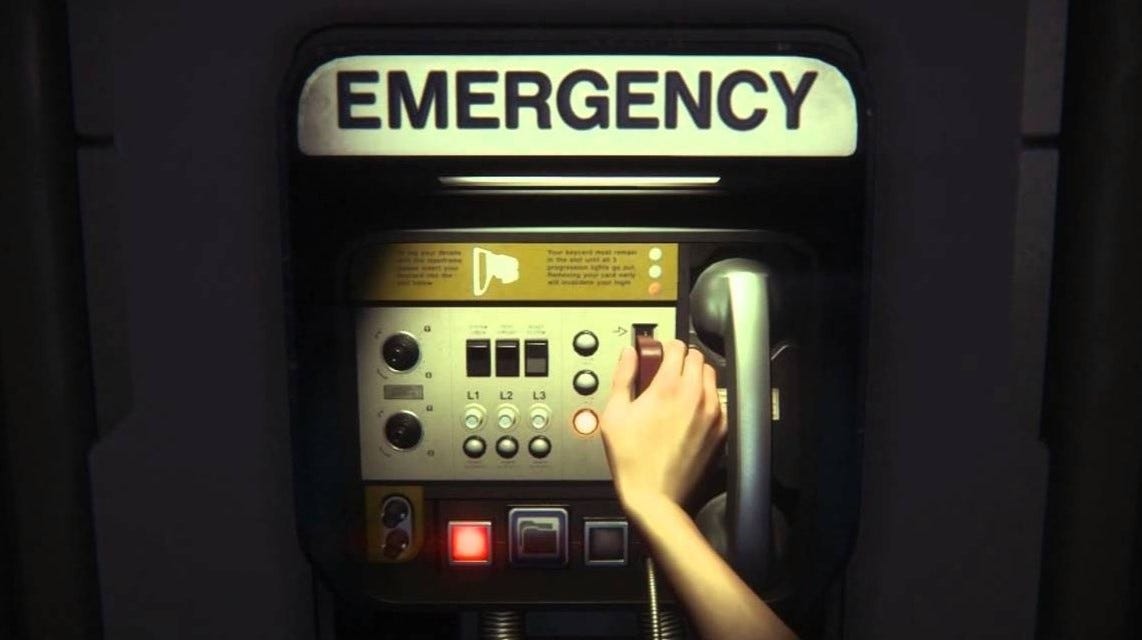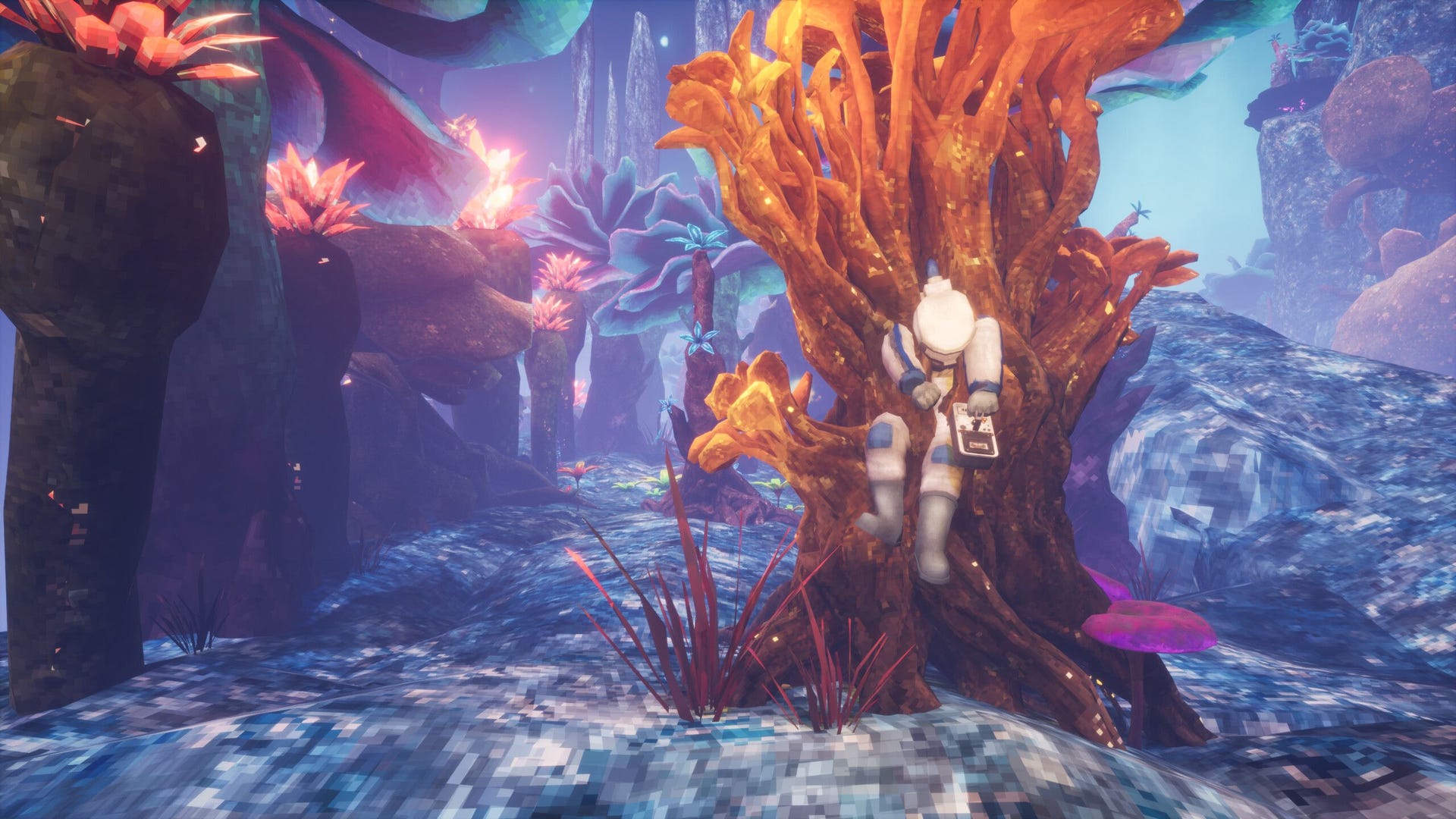Ever want to blast off to another planet? In Nemesis, you get to do that… but of course there’s a catch, because why would something so inviting not have a twist? There’s always got to be something to ruin a fantasy, right?
Fans of the franchise Aliens will likely enjoy Nemesis, as the monsters in the game are reminiscent of that series. These aliens create a lot of chaos, and you and your fellow players will do everything possible to escape alive in this semi-cooperative board game.
Wait, semi-cooperative? Yes, each player has secret objectives, so your friends might not really be your friends. They might help you one moment and betray you the next. Complete your goals by finishing your secret objectives (altruistic or nefarious) and escape without getting eaten by aliens or killed by your friends to win the game. Nemesis will absolutely test your real-life friendships.
The Base Games
Nemesis (Original Version)
- MSRP: $44.95 USD
- 1-5 Players (best with 3)
- 90-180 minutes
- Ages 14+
This is the original base board game. It’s great for newcomers to the bleak world of Nemesis.
Nemesis: Lockdown
Contents: new alien race, new character skills, elevators and staircases, more computer actions, hatch system, contingency process
- MSRP: $153.10 USD
- 1-5 Players
- 90-180 minutes
- Ages 14+
This is the basic Nemesis game, but with a heap of new options that change up the gameplay quite a bit. New characters and abilities allow new mechanisms to explore new rooms. You can power up elevators to go up and down levels. Doing so allows for advantages that can attack aliens. You can use special computer actions. There’s now a contingency process telling folks who is worth saving and who isn’t. You’ll work together to determine what the act is depending on your goal. You can also escape via pods, exit via a rover, or isolation.
Expansions
Expansions add more elements to the game but require one of the base games to incorporate them. Some expansions add more depth than others. All of the expansions listed below add something different to the game in their own way.
Nemesis: Aftermath Expansion
Contents: new alien race, 5 new characters with new skills, 4 new rooms, turrets, shuttle board
- MSRP: $89.92 USD
- 1-5 Players
- 90-180 minutes
- Ages 14+
This is an expansion. You’ll need a base game of Nemesis or Lockdown Edition to play it.
The shuttle board goes next to the original side of the ship. It changes the gameplay, allowing you to move around the ship and giving you new tiles to explore.
Aftermath also allows you to play in three different ways. The first way is by simply adding the elements of the expansions you like and playing the game. You can add the characters, character traits, new rooms, or the turrets. The next way you can play (also called Epilogue) is by extending the game in an epilogue with some exploration of new characters and objectives that you’ll have to complete within 5 turns. The last way is called “research mode”, which adds even more exploration and modifiers. The last version takes the longest as it integrates all three game elements.
Nemesis: Carnomorph Expansion
Contents: new mechanics, new monster miniatures
- MSRP: $79.99 USD
- 1-5 Players
- 60-120 minutes
- Ages 14+
This is an expansion. You’ll need a base game of Nemesis or Lockdown Edition to play it.
Carnomorph adds a new mechanic with an intruder race. Character mutations also allow players to get infected and turn into aliens. Be careful. When this expansion is added, those aliens and sometimes your friends will bite back in more ways than betrayal.
Nemesis: Terrain Expansion
Contents: 29 new miniatures
- MSRP: $59.99 USD
- 1-5 Players
- 60-120 minutes
- Ages 14+
This is an expansion. You’ll need a base game of Nemesis or Lockdown Edition to play it.
This expansion gives you new miniatures which will add unique experiences to gameplay. The miniatures are highly detailed.
Nemesis: Voidseeders Expansion
Contents: new alien race, new monster miniatures, new game mechanics, new event cards and tokens
- MSRP: $64.14 USD
- 1-5 Players
- 60-120 minutes
- Ages 14+
This is an expansion. You’ll need a base game of Nemesis or Lockdown Edition to play it.
You might go insane with this expansion, as it adds character insanity as a new mechanic to the game. Alien Void Seeders can manipulate you to their bidding. Intruders seek you out to defeat you. So will your friends. Do you have what it takes to escape the void and make it out alive?
Miniatures
If you’re a fan of the art, there are a couple of sets of miniatures that you can get for fun. They are only for show, though. They do not have anything special for use in the game.
Nemesis: Kings Miniatures
Contents: one Intruder King, one Void Seeder King, Three Carnomorph Kings
These are purely cosmetic cardboard alternative king alien figures that do nothing additional for gameplay.
Nemesis: Space Cats Miniatures
Contents: four plastic cat miniatures
These are purely cosmetic figures that do nothing additional for gameplay.
More Ways to Play
Although there are two games inspired by the Nemesis series, there is no version that mirrors the physical versions of the game.
Nemesis Lockdown was released in 2022 on Steam to mixed reviews.
Nemesis Distress is currently available as an early-access game on Steam.
Bottom Line
Nemesis is a stunning game with a lot of complexity. Board Game Geek reviewers rank it an 8.3 out of 10. It offers an immersive experience to those dedicated to learning and sitting for a bit. The game can be difficult due to the many elements at work. Bad luck can make for unpredictable elements, making the game extremely frustrating, especially for new players. The game is best suited for serious board gamers willing to commit the time and the funds to enjoy it.
Aside from the learning curve and uncontrollable elements, it has a lot of replayability. The miniatures are highly detailed and artwork in themselves. While it’s not officially an Alien franchise game, it’s got major H.R. Giger-styled features that make me wish I was back in Greyere sitting at the H.R. Giger Bar playing this.
Jennifer Stavros is a contributing freelancer for IGN, covering everything from comics, games, technology, and nerd culture. Follow her on Twitter or watch her on Twitch under the handle @scandalous.




